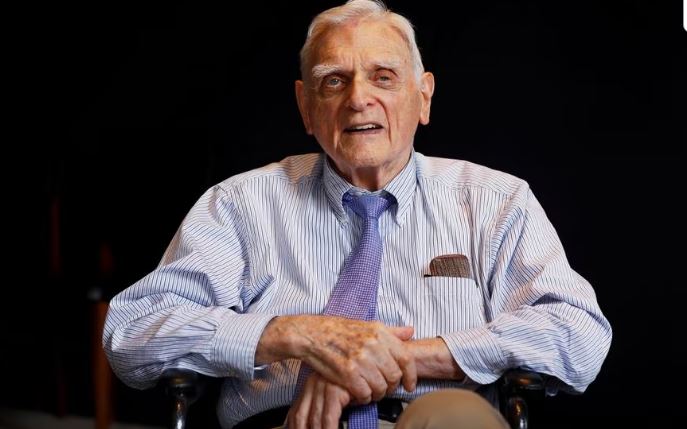Nobel Laureate And Battery Pioneer John Goodenough Passes Away at 100
LAHORE MIRROR (Reuters) — Nobel laureate John Goodenough, a pioneer in the development of lithium-ion batteries that today power millions of electric vehicles around the globe, died on Sunday just a month short of his 101st birthday.
The American was “was a leader at the cutting edge of scientific research throughout the many decades of his career,” said Jay Hartzell, President of the University of Texas at Austin where Goodenough was a faculty member for 37 years.
Goodenough was 97 when he received the 2019 Nobel Prize for Chemistry – along with Britain’s Stanley Whittingham and Japan’s Akira Yoshino, for their respective research into lithium-ion batteries – making him the oldest recipient of a Nobel Prize.
“This rechargeable battery laid the foundation of wireless electronics such as mobile phones and laptops,” the Royal Swedish Academy of Sciences said on making the award.
“It also makes a fossil fuel-free world possible, as it is used for everything from powering electric cars to storing energy from renewable sources.”
In recent years, Goodenough and his university team had also been exploring new directions for energy storage, including a “glass” battery with solid-state electrolyte and lithium or sodium metal electrodes.
Goodenough also was an early developer of lithium iron phosphate (LFP) cathodes as an alternative to nickel- and cobalt-based cathodes. LFP is rapidly overtaking more-expensive nickel cobalt manganese in electric vehicle batteries, experts say, because it uses materials that are more abundant and sustainable at much lower cost.
He was born on July 25, 1922, in Jena, Germany, to American parents.
After completing a bachelors in mathematics at Yale University, Goodenough received an masters and a PhD in physics from the University of Chicago. He became a researcher and team leader at the Massachusetts Institute of Technology and later headed the inorganic chemistry lab at the University of Oxford.
SOURCE: REUTERS

